
Pakse: Gateway to Southern Laos' Wonders
Pakse, nestled in the southern region of Laos, is a hidden gem waiting to be discovered. This charming city is the capital of Champasak Province and serves as a hub for travelers seeking both adventure and tranquility. With its picturesque landscapes, vibrant markets, and a blend of French colonial and traditional Lao architecture, Pakse offers a unique cultural experience. The city is a starting point for exploring the Bolaven Plateau, renowned for its coffee plantations, stunning waterfalls, and cool climate. Don't miss a visit to the Tad Fane and Tad Yuang waterfalls, where nature's beauty is on full display. For history enthusiasts, the ancient Khmer temple complex of Wat Phu is just a short drive away and offers a glimpse into the region's rich past. Pakse is also a paradise for food lovers. The local markets are brimming with fresh produce, and you can savor delicious Lao cuisine at numerous street food stalls and restaurants. Whether you're looking to relax by the Mekong River, embark on thrilling outdoor adventures, or immerse yourself in local culture, Pakse has something for everyone.
Local tips in Pakse
- Visit the local markets early in the morning for the freshest produce and authentic Lao breakfast options.
- Rent a motorbike to explore the Bolaven Plateau at your own pace; it's the best way to visit waterfalls and coffee plantations.
- Carry cash, as many local shops and restaurants do not accept credit cards.
- Respect local customs and dress modestly, especially when visiting temples and rural areas.
- Try the local coffee at small cafés; it's some of the best in Southeast Asia.
Pakse: Gateway to Southern Laos' Wonders
Pakse, nestled in the southern region of Laos, is a hidden gem waiting to be discovered. This charming city is the capital of Champasak Province and serves as a hub for travelers seeking both adventure and tranquility. With its picturesque landscapes, vibrant markets, and a blend of French colonial and traditional Lao architecture, Pakse offers a unique cultural experience. The city is a starting point for exploring the Bolaven Plateau, renowned for its coffee plantations, stunning waterfalls, and cool climate. Don't miss a visit to the Tad Fane and Tad Yuang waterfalls, where nature's beauty is on full display. For history enthusiasts, the ancient Khmer temple complex of Wat Phu is just a short drive away and offers a glimpse into the region's rich past. Pakse is also a paradise for food lovers. The local markets are brimming with fresh produce, and you can savor delicious Lao cuisine at numerous street food stalls and restaurants. Whether you're looking to relax by the Mekong River, embark on thrilling outdoor adventures, or immerse yourself in local culture, Pakse has something for everyone.
When is the best time to go to Pakse?
Iconic landmarks you can’t miss
Tad Gneuang Waterfall
Experience the majestic Tad Gneuang Waterfall in Laos: a stunning natural escape on the Bolaven Plateau with breathtaking views and refreshing waters.
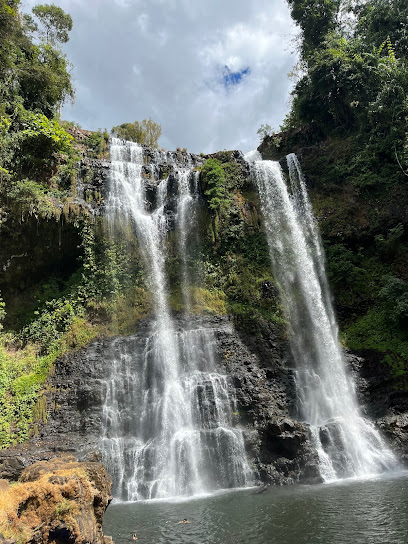
Vat Phou
Explore the ancient Khmer ruins of Vat Phou, a UNESCO World Heritage site in Laos, predating Angkor Wat.
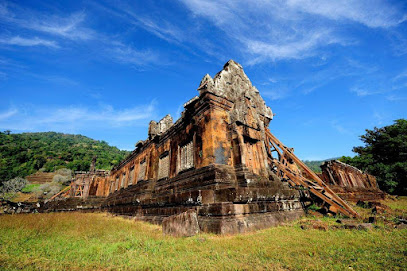
Champasak Grand Hotel
Experience comfort and convenience on the Mekong River at Champasak Grand Hotel, your gateway to exploring southern Laos.

Wat Phousalao
Discover the serene beauty of Wat Phousalao in Pakse, Laos, with its iconic golden Buddha statue and panoramic views of the Mekong River.
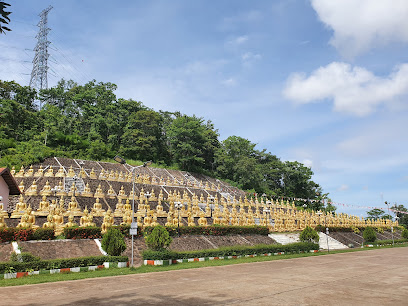
Pakse Hotel & Restaurant
Experience colonial charm and modern comfort at Pakse Hotel & Restaurant, your gateway to exploring Southern Laos.

Sanga Hostel and souvenir
Experience comfort and culture at Sanga Hostel in Pakse, your gateway to exploring Southern Laos and its hidden gems.

Tad Fane Waterfall
Witness the majestic Tad Fane Waterfall in Laos: Twin cascades, lush jungle, and thrilling zipline adventures await on the Bolaven Plateau.
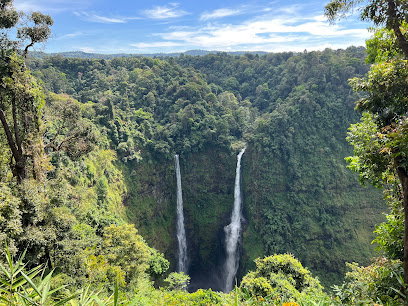
Wat Luang
Discover Wat Luang, Pakse's oldest temple, blending Lao and French architecture, a center for Buddhist worship, and a serene cultural experience.
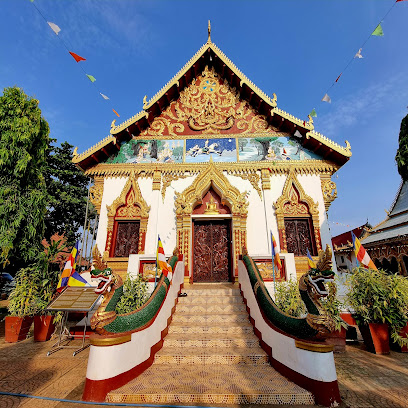
Intouch Riverside Hotel
Riverside comfort and convenience in Pakse, offering a relaxing base for exploring southern Laos' cultural and natural wonders.
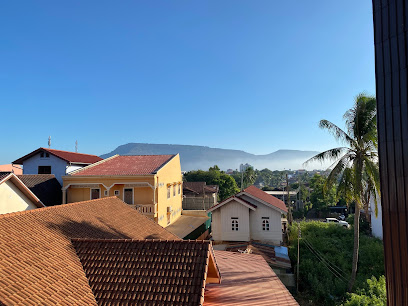
Champasak Palace Hotel
Experience the grandeur of Lao royalty at Champasak Palace Hotel, a historical landmark in Pakse blending neo-classical and Laotian design.

Xuanmai Garden Resort
Discover tranquility in Pakse at Xuanmai Garden Resort: comfortable rooms, lush gardens, and a serene escape near city attractions.

Athena Hotel
Experience comfort and convenience at Athena Hotel, your serene escape in the heart of Pakse, Laos. Explore the wonders of southern Laos from here.

Lao Go Car and Motorbike Rental
Your trusted partner for car and motorbike rentals in Pakse, Laos. Explore the Bolaven Plateau and beyond with freedom and ease.
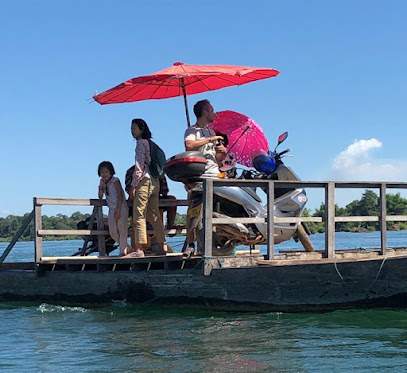
Dok Champa Massage
Experience tranquility at Dok Champa Massage in Pakse: traditional Lao techniques for ultimate relaxation and rejuvenation.
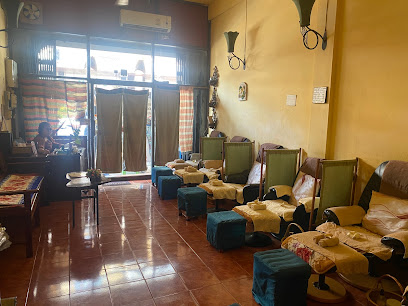
Lao-Nippon Bridge
Experience the stunning Lao-Nippon Bridge in Pakse: a symbol of friendship, offering breathtaking Mekong River views and cultural insights.
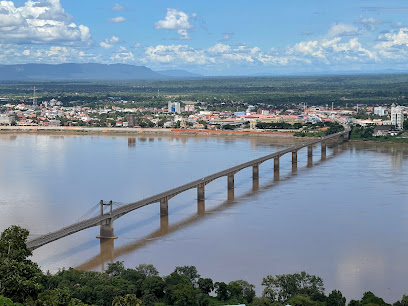
Unmissable attractions to see
Tad Gneuang Waterfall
Explore the stunning Tad Gneuang Waterfall in Paksong, a breathtaking natural attraction surrounded by lush landscapes and rich biodiversity.
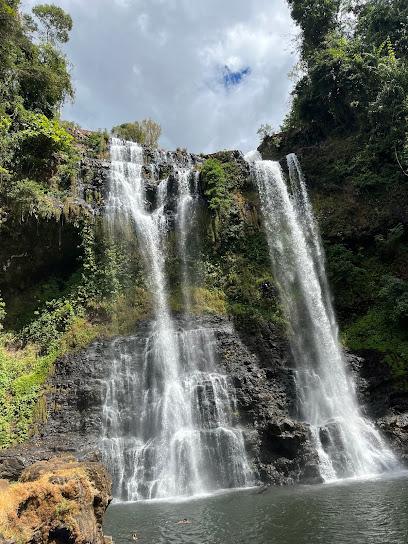
Vat Phou
Explore the majestic Vat Phou, a UNESCO World Heritage Site, where ancient Khmer architecture meets breathtaking natural beauty in Laos.
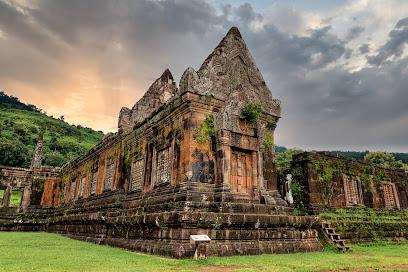
Lao-Nippon Bridge
Discover the Lao-Nippon Bridge in Pakse, a stunning architectural marvel offering breathtaking views of the Mekong River and rich cultural experiences.
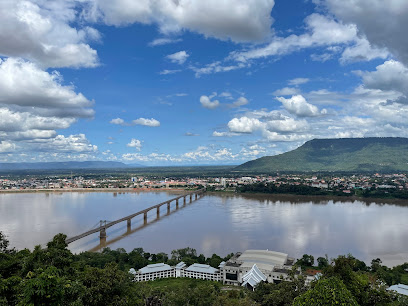
Bolaven Plateau
Explore the breathtaking Bolaven Plateau with its stunning waterfalls, lush coffee plantations, and vibrant local cultures, perfect for adventure and relaxation.
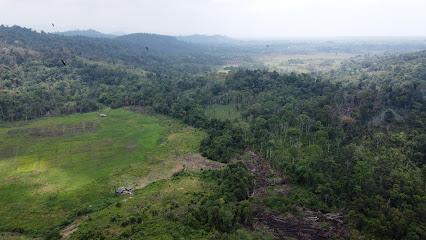
Tiger Waterfall
Experience the breathtaking beauty of Tiger Waterfall, a hidden gem in Laos, perfect for nature lovers and adventure seekers.
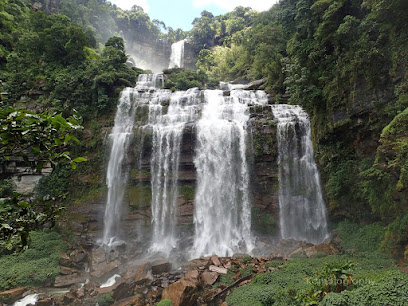
Wat Tomo
Discover the serene beauty and rich cultural heritage of Wat Tomo, a must-see Buddhist temple in Muang Champassak, Laos.
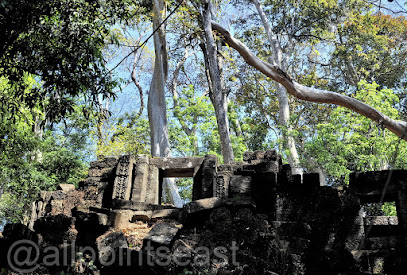
Rice Field Trail
Discover the tranquil beauty of the Rice Field Trail in Muang Champassak, a perfect blend of nature and culture in Laos.
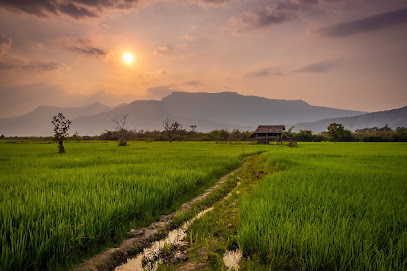
White Beach
Experience the tranquil beauty of White Beach, where soft sands and crystal-clear waters create an unforgettable escape for every traveler.

Essential places to dine
Dok Mai Lao Caffe' Restaurant
Discover authentic Italian flavors at Dok Mai Lao Caffe', where every dish tells a story and every meal is an experience.
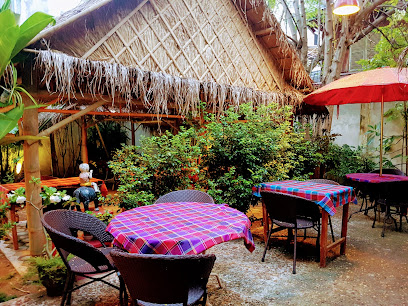
Sabaidee Pakse Restaurant
Discover authentic Lao cuisine at Sabaidee Pakse Restaurant in the heart of Pakse—where flavor meets tradition.
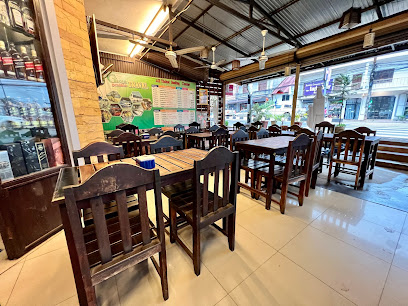
Pho Lankham
Discover authentic Vietnamese flavors at Pho Lankham in Pakse—your gateway to delicious pho and vibrant culinary experiences.
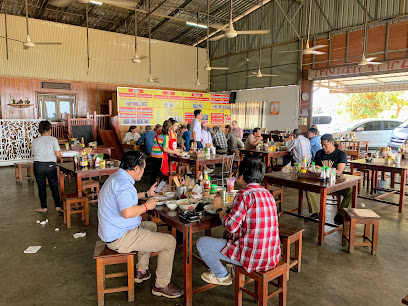
Meiling restaurant
Experience the essence of Asian cuisine at Meiling Restaurant in Pakse, where each dish tells a story of flavor and tradition.
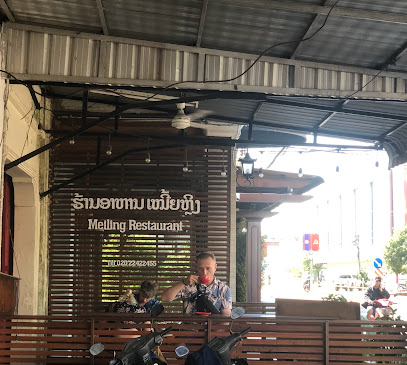
Dornsokdee Restaurant
Discover the authentic taste of barbecue and Asian cuisine at Dornsokdee Restaurant in Pakse, where every bite tells a story.
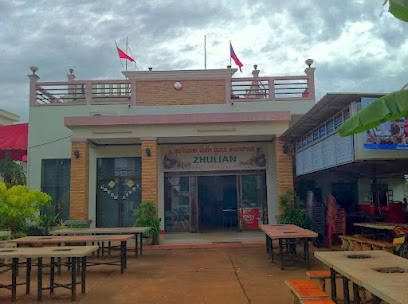
La Mémoire Café & Restaurant
Experience the best of fusion cuisine at La Mémoire Café & Restaurant in Pakse - where local flavors meet global inspiration.
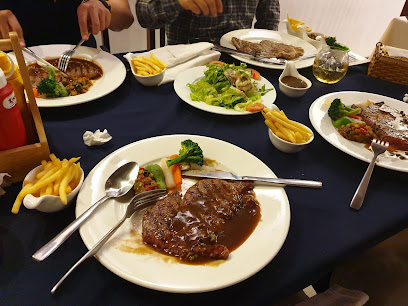
Khamfong Boat Restaurant
Discover authentic Laotian flavors at Khamfong Boat Restaurant in Pakse while enjoying breathtaking views of the Mekong River.
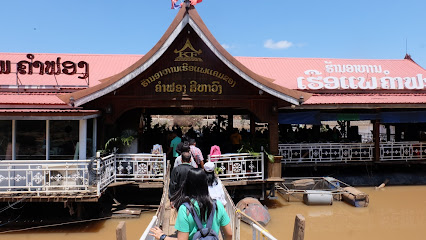
Daolin Restaurant
Experience authentic Laotian flavors at Daolin Restaurant in Pakse – where every meal is a celebration of culture and taste.
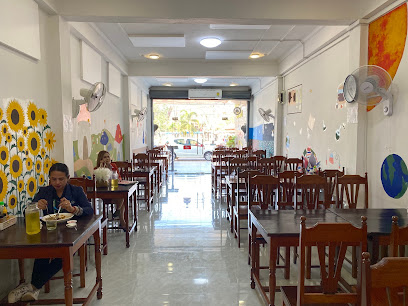
View Bar
Experience delectable local cuisine and stunning views at View Bar in Pakse - your perfect dining destination.
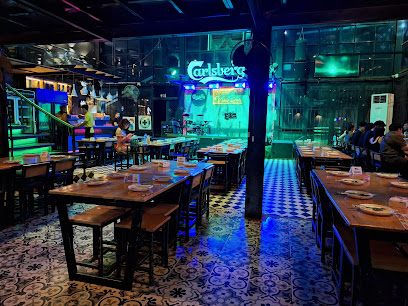
Delta Coffee Shop & Restaurant
Experience authentic Thai cuisine alongside delicious bakery items at Delta Coffee Shop & Restaurant in Pakse.
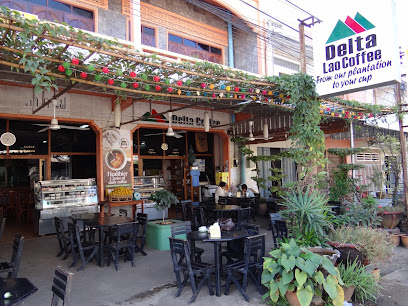
Hasan Indian Restaurant
Discover authentic Indian flavors at Hasan Indian Restaurant in Pakse - where each dish tells a story of tradition and spice.
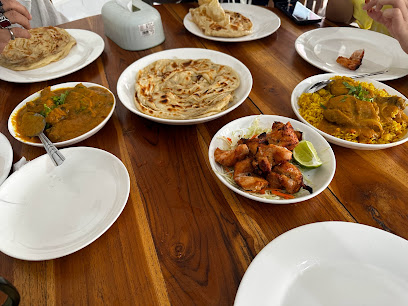
Le Panorama
Discover authentic Lao cuisine with stunning views at Le Panorama, Pakse's premier dining destination.
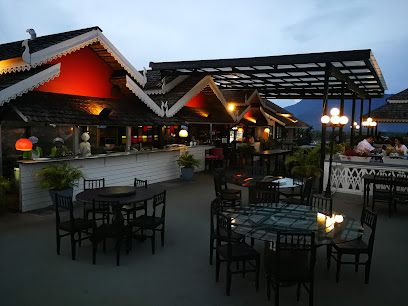
La Biang Phu Restaurant
Experience authentic Lao cuisine at La Biang Phu Restaurant in Pakse - where every dish tells a story of tradition and flavor.
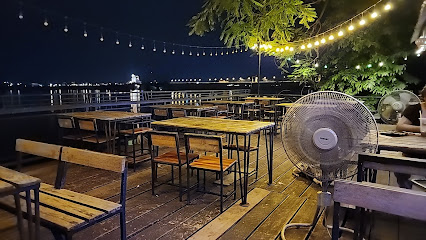
The Best Cafe& Restaurant
Experience authentic flavors at The Best Cafe & Restaurant in Pakse – where local cuisine meets warm hospitality.
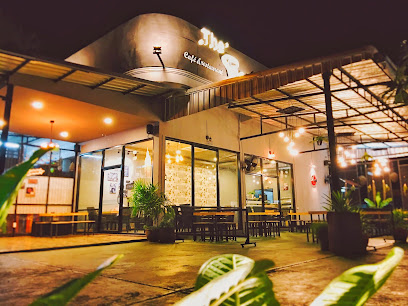
Jasmin Restaurant
Savor authentic Indian cuisine in Pakse at Jasmin Restaurant - a culinary journey filled with rich flavors and vibrant culture.
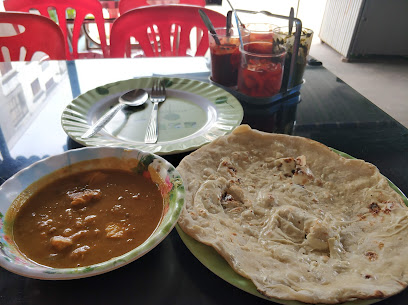
Markets, malls and hidden boutiques
Friendship Mall
Experience the vibrant blend of shopping, dining, and local culture at Pakse's Friendship Mall, a must-visit destination for every traveler.
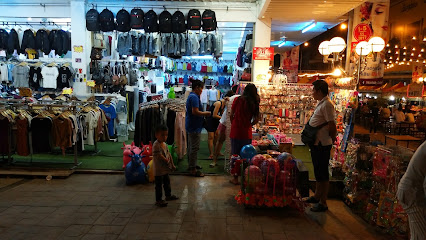
Café Sinouk Pakse
Experience the rich flavors of Laos at Café Sinouk Pakse, where local coffee culture comes alive in a cozy, welcoming setting.
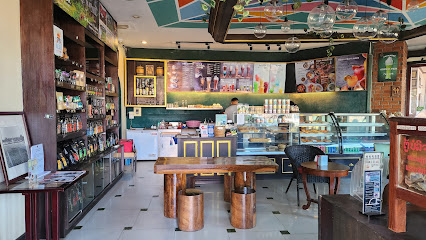
124 Thaluang Coffee
Discover a cozy retreat at 124 Thaluang Coffee, where every cup tells a story and the ambiance invites relaxation in the heart of Pakse.
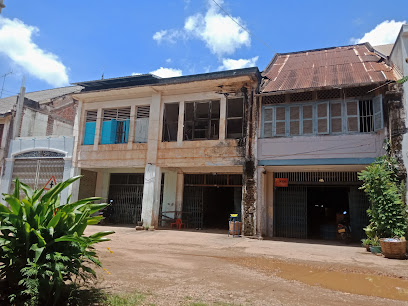
Delta Coffee Shop & Restaurant
Experience the flavors of Thailand at Delta Coffee Shop & Restaurant, a cozy spot in Pakse known for its delicious dishes and aromatic coffee.
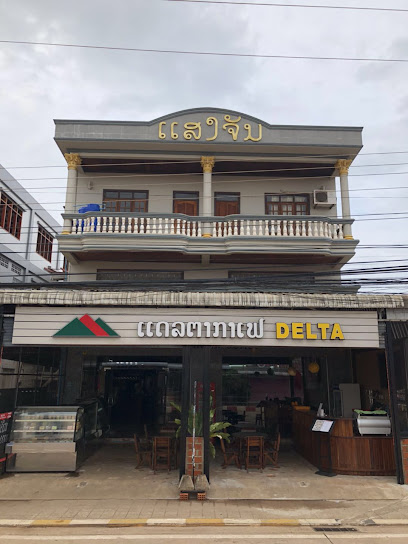
ຕັງຈະເລີນ TCR HOME STORE
Explore the vibrant craftsmanship of Laos at TCR Home Store in Pakse, where unique home goods and local artistry await every traveler.
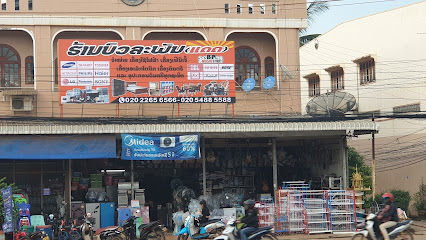
Bestco 百事购 supermarket
Bestco 百事购 Supermarket in Pakse: A vibrant shopping destination for fresh produce and local delicacies, perfect for every traveler.
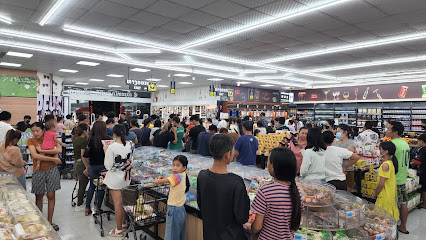
V-Market
Discover the vibrant shopping experience at V-Market in Pakse, where local flavors and everyday essentials meet in a lively atmosphere.
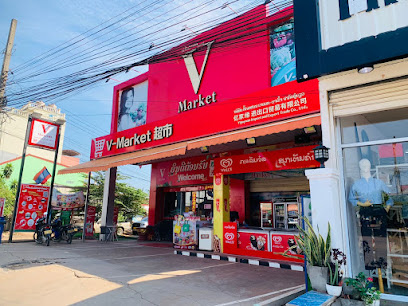
Dao Heuang Market
Immerse yourself in the vibrant culture of Laos at Dao Heuang Market, a must-visit destination for authentic local goods and delicious cuisine.
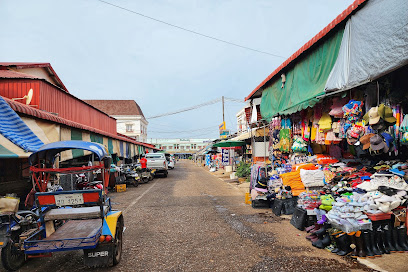
Story coffee (Pakse)
Experience the rich coffee culture of Pakse at Story Coffee, where every cup tells a story and every visit feels like home.
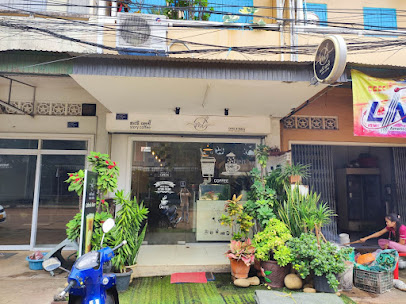
Samsung Brand Shop Pakse
Discover cutting-edge mobile technology at Samsung Brand Shop Pakse, the ultimate destination for tech lovers in Laos.
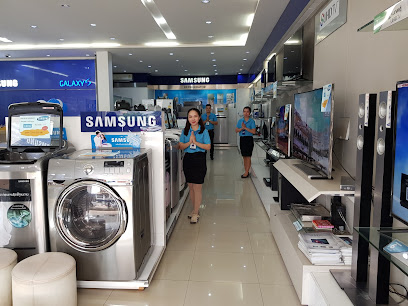
Pakse Mobile
Experience the best of shopping and local culture at Pakse Mobile, a premier shopping mall in the heart of Pakse, Laos.
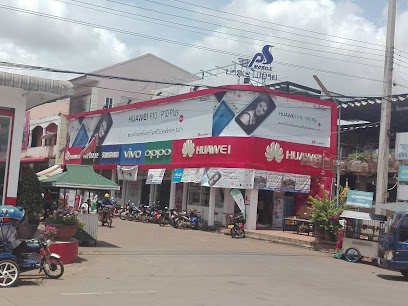
Agro Mart Pakse
Explore the vibrant Agro Mart Pakse, a treasure trove of local flavors and products in the heart of Laos, perfect for immersing in the local culture.
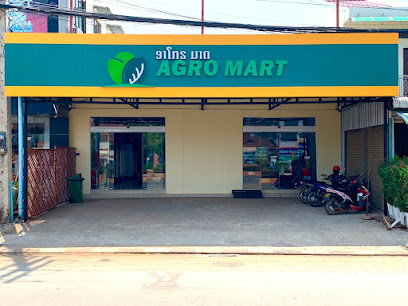
ຮ້ານ ສຸບິນ ສະປອດ Soubin Sport
Explore Soubin Sport, a premier sportswear store in Pakse, featuring quality gear for soccer and badminton enthusiasts.
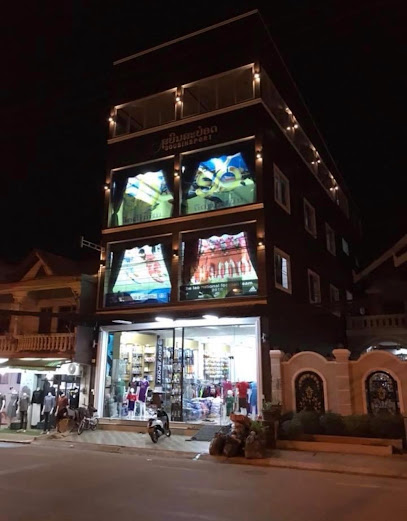
ເພັດສະໄໝ ດອກໄມ້ປະດິດ
Explore the vibrant local culture and unique craftsmanship at ເພັດສະໄໝ ດອກໄມ້ປະດິດ store in Pakse, offering a delightful array of local goods.
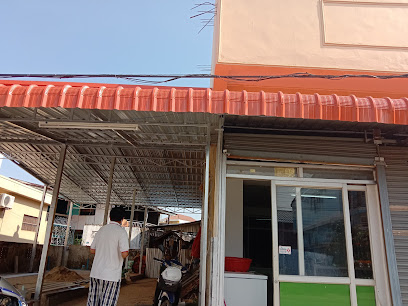
Douangdy Plaza
Experience the vibrant shopping and local cuisine at Douangdy Plaza in Pakse, where culture meets commerce in a lively atmosphere.
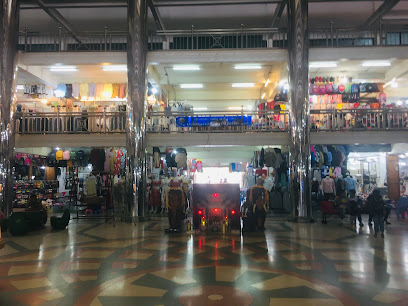
Essential bars & hidden hideouts
Dok Mai Lao Caffe' Restaurant
Experience authentic Italian cuisine in the heart of Pakse at Dok Mai Lao Caffe', where every dish tells a delicious story.
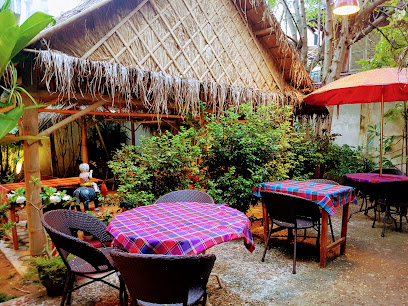
SéSé Wine and Beer
Experience the perfect blend of a cozy bar, lively beer hall, and refined wine bar at SéSé Wine and Beer in Pakse, Laos.
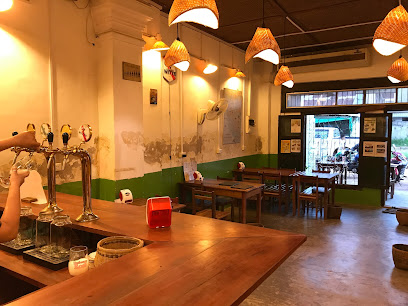
La Mémoire Café & Restaurant
Experience the best of Laotian and fusion cuisine at La Mémoire Café & Restaurant in Pakse, where every dish tells a story of flavor.
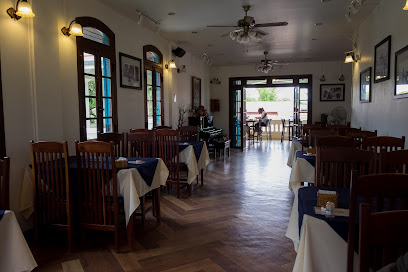
Kiloy2000 Beer Garden & Restaurant
Experience the lively atmosphere and delicious grilled cuisine at Kiloy2000 Beer Garden & Restaurant in Pakse, a must-visit for food lovers.
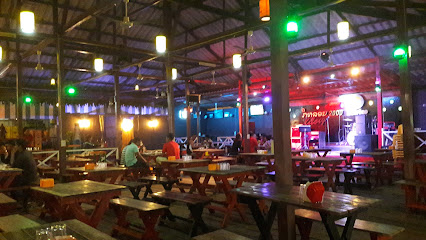
View Bar
Discover the dynamic energy and delightful flavors at View Bar, the perfect spot for dining and nightlife in Pakse.
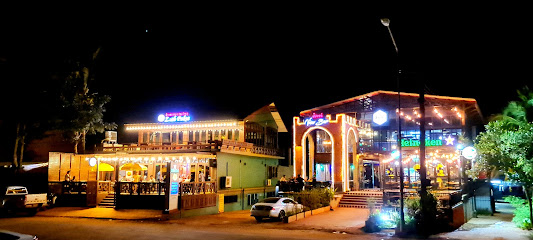
Plousio
Experience the vibrant nightlife of Pakse at Plousio, where local culture meets a lively bar atmosphere and exquisite drinks await.
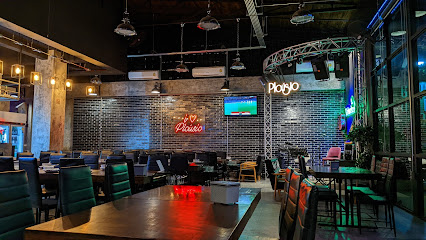
Balance café & beer Pakse
Discover the perfect blend of coffee and beer in Pakse at Balance Café & Beer, a vibrant spot for relaxation and local flavors.
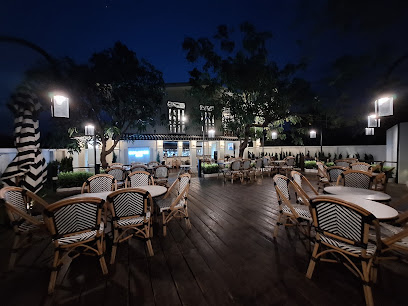
Brick House Sport Bar & Restaurant
Experience vibrant nightlife and delicious cuisine at Brick House Sport Bar & Restaurant in Pakse, where every game is a celebration.
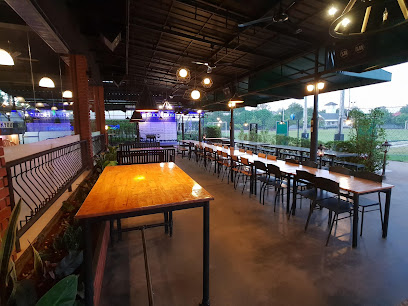
Fullmoon
Discover the lively nightlife of Pakse at Fullmoon Pub, where great drinks and live music create unforgettable experiences.
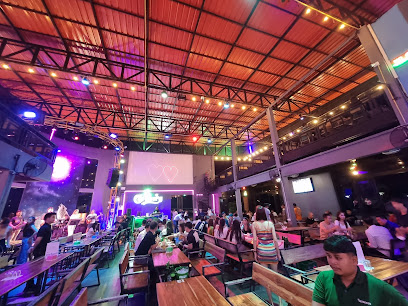
ຄໍເບຍ - Corebeer Pakse
Discover the vibrant nightlife of Pakse at Corebeer, where local brews and friendly vibes create unforgettable memories.
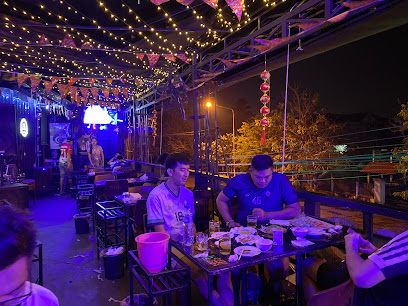
YES99 Pakse
Discover the vibrant nightlife of Pakse at YES99, where great drinks and a friendly atmosphere await every visitor.
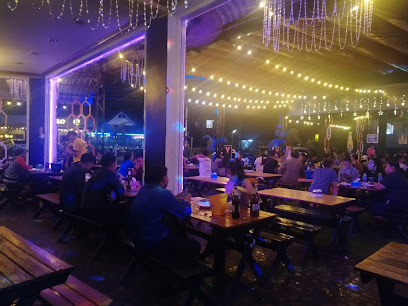
하트비트 클럽 팍세
Discover Pakse's nightlife at Heartbeat Club, where vibrant music and refreshing drinks create an unforgettable experience for every visitor.
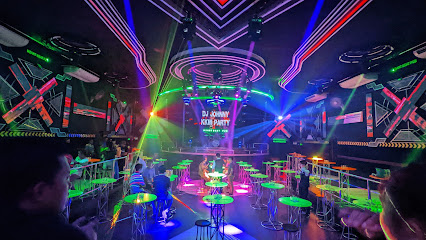
ຮ້ານອາຫານທອງຫຼໍ່ ບາຣ ປາກເຊ
Discover the lively charm of ຮ້ານອາຫານທອງຫຼໍ່ ບາຣ ປາກເຊ, a vibrant bar in Pakse offering a delightful mix of drinks and local culture.
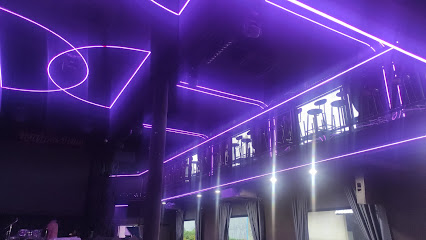
Shockwave Bar Pakse
Discover the lively ambiance and unique flavors at Shockwave Bar Pakse, the perfect spot for an evening of relaxation and connection in southern Laos.
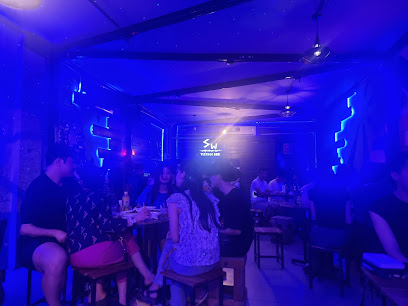
Local Phrases
-
- Helloສະບາຍດີ
[sa bai dee] - Goodbyeສະບາຍດີ
[la khon] - Yesສະບາຍດີ
[chai] - Noບໍ່
[bo] - Please/You're welcomeກະລຸນາ
[ka lu na] - Thank youຂອບໃຈ
[kop jai] - Excuse me/Sorryຂ້າພະຈາຘີ
[ka pha ja mai] - How are you?ໂລກເກີດໃຈຫາ?
[lok koi jai lao?] - Fine. And you?ດອກ, ພວກເຮົາອາດາ?
[dok, puak hao adai?] - Do you speak English?ເຈົ້າເວົ້າພາສາອັງກິດບໍ?
[jao waa pha sa ang-kit bo?] - I don't understandຂ້ອຍເປັນຮູ້ບໍ
[koi pen huu bo]
- Helloສະບາຍດີ
-
- I'd like to see the menu, pleaseຂ້ອຍຕ້ອງເບິ່ງໂມບັບກາວ
[koi tong bong eng menu ka] - I don't eat meatຂ້ອຍບໍ່ກິນຊີ
[koi bo gin see] - Cheers!ຂີຢ່າ
[koy] - I would like to pay, pleaseຂ້ອຍຕ້ອງຈ່າຍ
[koi tong chai]
- I'd like to see the menu, pleaseຂ້ອຍຕ້ອງເບິ່ງໂມບັບກາວ
-
- Help!ຊ່ວຍຊ່ວຍ
[sue sue] - Go away!ໄປນາ
[pai na] - Call the Police!ໂທງຕ້ອງຍ້າຍພະຈິກ
[tong tong tong yai pha jik] - Call a doctor!ໂທງຕ້ອງຍ້າຍທ່າງ
[tong tong tong yai tang] - I'm lostຂ້ອຍທີ່ປູ່
[koi ti pu] - I'm illຂ້ອຍມີເຈັບ
[koi mi jap]
- Help!ຊ່ວຍຊ່ວຍ
-
- I'd like to buy...ຂ້ອຍຕ້ອງຊື້
[koi tong soom] - I'm just lookingຂ້ອຍເບິ່ງເຂົ້າ
[koi bong khow] - How much is it?ມູນເດືອນເມືອ
[mun doon meun] - That's too expensiveນີ້ຂອງແມ່ນຂີງ
[ni kong mai koy] - Can you lower the price?ເຈົ້າຈະລົງລາຄຶກອອກໄດ້ບໍ?
[jao sa long la khek ok dai bo]
- I'd like to buy...ຂ້ອຍຕ້ອງຊື້
-
- What time is it?ເວລາແມ່ນຫວານ?
[wa lao mai waan?] - It's one o'clockສິບສິບ
[sip sip] - Half past (10)ຂ່າວສິບ
[kao sip] - Morningເຊົ້າ
[sao] - Afternoonບ່ອນດາວ
[bon dao] - Eveningກາງຄືນ
[kang kuen] - Yesterdayວັນວັດກ່ອນ
[wan wat korn] - Todayມື້ນີ້
[me ni] - Tomorrowມື້ອື້ນ
[me un] - 1ໜ້າ
[na] - 2ຊາວ
[sao] - 3ສາມ
[sam] - 4ສີ
[see] - 5ຫ້າ
[ha] - 6ຫົວ
[hu] - 7ເຈັດ
[jap] - 8ເຂົາ
[khow] - 9ເຈັດແປ
[jap pae] - 10ສິບ
[sip]
- What time is it?ເວລາແມ່ນຫວານ?
-
- Where's a/the...?ຢາກມີ...?
[yaak mi...?] - What's the address?ເຊື່ອແບບແມສາທີ່?
[sue bae ma sa thi?] - Can you show me (on the map)?ທ່ານສາມາດສະແດງຂ້ອຍໄດ້ບໍ?
[tang sa ma dai sa bong koi dai bo?] - When's the next (bus)?ມື້ນັ້ນເມືອນເມືອນຖື່ກາວ?
[me nan meun meun tu kao?] - A ticket (to ....)ເງີນໃຊ້ (ເພື່ອ ....)
[ngern sai (puak ....)]
- Where's a/the...?ຢາກມີ...?
History of Pakse
-
Pakse, the capital of Champasak Province, was founded by French colonialists in 1905. Located at the confluence of the Mekong and Xe Don rivers, it served as an important administrative and commercial hub in the region.
-
During the French colonial period, Pakse grew in importance and saw the construction of many buildings in the French architectural style. The influence of French culture can still be seen in some of the city's colonial-era structures, including the Champasak Palace Hotel, which was originally intended to be a royal residence.
-
During World War II, Pakse, like much of Laos, was occupied by Japanese forces. This period saw significant disruption, but the end of the war brought liberation and the eventual departure of Japanese troops.
-
In 1954, Laos gained independence from French colonial rule. Pakse played a role in the post-independence reconstruction and development, becoming an important center for trade and transportation in southern Laos.
-
Near Pakse lies the ancient temple complex of Wat Phou, a UNESCO World Heritage Site. Dating back to the Khmer Empire, Wat Phou is one of the most important archaeological sites in Laos and reflects the historical significance of the region during the 10th to 14th centuries.
-
During the Lao Civil War (1959-1975), Pakse was a strategic location due to its proximity to the Ho Chi Minh Trail. The city witnessed significant military activity and population movements during this turbulent period.
-
In recent decades, Pakse has developed into a vibrant city that blends traditional Lao culture with modern influences. It has become a gateway for tourism in southern Laos, offering visitors access to natural attractions such as the Bolaven Plateau and Si Phan Don (4000 Islands).
-
Pakse is home to a diverse cultural heritage that includes ethnic Lao, Chinese, and Vietnamese communities. The city's markets, festivals, and temples reflect this rich tapestry of cultures, providing a unique experience for visitors.
Pakse Essentials
-
Pakse is located in the southern part of Laos and serves as a gateway to the Bolaven Plateau and the Mekong River region. The main point of entry is Pakse International Airport (PKZ), which has connections to major cities in Laos, as well as international flights from Bangkok, Siem Reap, and Ho Chi Minh City. From the airport, you can take a taxi or arrange for a hotel shuttle service to reach the city center. Alternatively, Pakse is accessible by bus from Vientiane, Savannakhet, and other Laotian cities. Buses are the most cost-effective mode of transportation, though the journey can be long.
-
Within Pakse, transportation options include tuk-tuks, taxis, and motorbike rentals. Tuk-tuks are a popular and affordable way to get around the city. Taxis are available but are relatively more expensive. Renting a motorbike is a convenient option for those who wish to explore the surrounding areas at their own pace. For longer trips, such as visits to the Bolaven Plateau or Wat Phou, consider hiring a private car with a driver or joining an organized tour.
-
The official currency in Laos is the Lao Kip (LAK). While some hotels and restaurants in Pakse accept credit cards, cash is the most widely used form of payment. ATMs are available in the city, but it is advisable to carry sufficient cash, especially when traveling to rural areas. Currency exchange services are available at banks and exchange booths in Pakse.
-
Pakse is generally a safe destination for tourists. However, it is important to take standard precautions. Avoid walking alone at night in poorly lit areas and keep your belongings secure in crowded places. While Pakse does not have specific high-crime areas targeting tourists, it is always best to stay vigilant and aware of your surroundings.
-
In case of emergency, dial 1191 for police assistance or 1195 for medical emergencies. Pakse has a central hospital and several clinics that can provide medical care. It is recommended to have travel insurance that covers medical emergencies. For minor health issues, pharmacies are available in the city where you can purchase over-the-counter medications.
-
Fashion: Do dress modestly, especially when visiting religious sites. Avoid wearing revealing clothing. Religion: Do respect local customs and traditions. Always remove your shoes and cover your shoulders when entering temples. Public Transport: Do be respectful and give up your seat to elderly passengers. Don’t eat or drink on public transport. Greetings: Do greet people with a slight bow or a 'Nop' (placing your hands together in a prayer-like gesture). Eating & Drinking: Do try local delicacies and accept food offerings graciously. Don’t refuse hospitality, as it is considered impolite.
-
To experience Pakse like a local, visit the Dao Heuang Market, where you can buy fresh produce, traditional Lao goods, and local handicrafts. Engage with locals, as they are often friendly and willing to share stories about the city's history and culture. Don’t miss visiting the UNESCO World Heritage Site of Wat Phou, an ancient Khmer temple complex. For a unique experience, take a river cruise on the Mekong River to enjoy the scenic beauty and observe local river life.
Trending Landmark in Pakse
Nearby Cities to Pakse
-
Things To Do in Champasak
-
Things To Do in Ubon Ratchathani
-
Things To Do in Savannakhet
-
Things To Do in Hue
-
Things To Do in Thakhek
-
Things To Do in Da Nang
-
Things To Do in Hoi An
-
Things To Do in Siem Reap
-
Things To Do in Tam Ky
-
Things To Do in Kratie
-
Things To Do in Battambang
-
Things To Do in Buon Ma Thuot
-
Things To Do in Quy Nhon
-
Things To Do in Nakhon Ratchasima
-
Things To Do in Udon Thani











